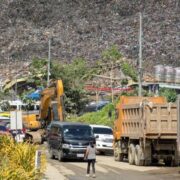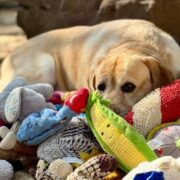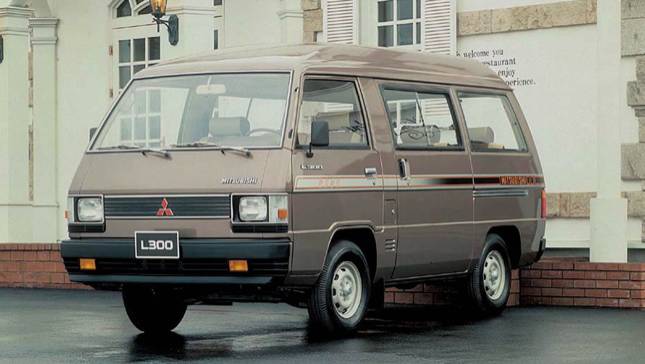‘MOM-GOLIN’

At the 2025 Mazda dealer awards ceremony at the New World Hotel in Makati City on the night of May 8, Mazda Philippines president and CEO Steven Tan described each Mazda dealer as “resilient.” Steven, a Malaysian who has been based in the Philippines for more than a decade already, emphatically described how these dealers showed such character in enduring a variety of challenges, including the Covid-19 pandemic.
Resilience, or what we Pinoys call “tatag ng loob” translates to strength of heart or inner fortitude, marked by courage or perseverance, a trait Filipinos often have had to rely on in times of personal and societal hardships.
At one point in the program, Steven introduced a guest whom he considered an epitome of resilience, and that guest was none other than Dr. Sabine Schoppe, a German biologist and Katala Foundation Inc’s jovial co-founder and director. KFI is a non-government conservation group that documents and protects the provinces’ critically endangered endemic wildlife species, particularly the Philippine Cockatoo, Palawan Forest Turtle, Calamine Deer, Balabac Mouse-deer and the Palawan Pangolin, which natives call the “balintong.”
KFI has been in partnership with Mazda Philippines for years, having received from the Japanese automaker a BT-50 Pangolin Edition in late December 2020 for its field operations, and another BT-50, the Pangolin Edition 2, during the celebration of Pangolin Day on Feb. 17, 2024. The BT-50 Pangolin Edition 2 is a stable and sturdy 3.0L AT 4×4 that comes in handy when navigating deep into forests, going up and down mountains and crossing rivers. Additionally, Mazda Philippines has committed to set aside P1,500 for each BT-50 pickup sold from this month onwards as additional funding for KFI.
Active in PH since 1995
It was in 1995 when Sabine first arrived in the Philippines and focused right away on fish sanctuaries and introduced alternative livelihoods to communities. She also became guest professor at Western Philippines University in Palawan for six years.
I first met Sabine in February 2024 during the turnover of the BT-50 Pangolin Edition 2 in the municipality of Roxas in Palawan. I and fellow motoring scribe Angel Rivero immediately formed a bond with her. We promised that we would return to the province to help the foundation in whatever capacity we could.
Steven related that he learned about KFI and its work “mostly by accident” when he read a story about KFI using an old Mazda SUV. He was then made aware about the Pangolin, and was surprised that people didn’t know what a Pangolin was.
We were fortunate to meet Sabine again on May 7, at a dinner hosted by Mazda Philippines in her honor. At the May 8 dealers’ awards, she was about to make her pitch for the KFI and the endangered Pangolin among dealers and Mazda Philippines’ business partners.
Shortly before her presentation, I asked Sabine if she wouldn’t mind if I called her “the Mother of Palawan Wildlife,” being that her job in the wilds of the province was a full-time one, just like a mother. She laughed, and said: “I’m married to wildlife, anak wildlife rin (the child of wildlife also).”
Steven describes Sabine’s devotion to the job as being done “out of love.” Sabine agrees. “Otherwise, you don’t do things like this. You can do an 8 to 5 job without love. But this, you cannot do without love. It’s not an 8-hour job. It’s 24 hours, 8 days a week. Walang holiday (no holiday),” she laughed.
Sabine declared, “I love my work. Otherwise, I could’ve stopped already.”
Mother of Pangolins and forest turtles
Sabine is running two programs, both of which began in 2007. One is for the Palawan Pangolin. The other is for the fresh water turtles, with the Palawan forest turtle as the flagship species. The Palawan forest turtle is also critically endangered and endemic to northern Palawan.
“The Palawan forest turtle is suffering the same fate as the Pangolin. It’s been exploited for traditional Chinese medicine, in addition to habitat loss, and habitat fragmentation. Since both are actually low-land species, there’s competition with humans for habitation. So, the (conservation and protection) approach for both species is the same. KFI always has this holistic approach. We do research, we do conservation, protection, education, capacity building, rescue and rehabilitation. When there’s confiscation, rehabilitation, we take care of those. For livelihood, there needs to be a partner. We can’t say this means of livelihood is not allowed without providing an alternative.”
Sabine, who interspersed her conversational English with Filipino, said, “It’s conservation with people. That’s our vision. You need the understanding, the commitment, and collaboration of the community. Otherwise, it doesn’t work if you declare an area protected and that’s it. You have to actively protect it. You have to make the people understand. We won’t declare an area protected if the affected community won’t agree to it. So, we raise awareness. We educate for one year, or until we come to the point we have public hearing and people are voting. If the majority is in favor, the protected area will be established.”
No time for marriage, kids
Sabine said that being a conservationist is similar to motherhood because of the full-time demands of the vocation.
“I missed the chance to get married and have kids because I committed my life to conservation. But I mean I don’t miss anything. I’m happy,” she laughed.
In Filipino, Sabine said, “It’s not only the wildlife I adopted. Many members of my staff I have virtually adopted, and they have kids of their own. So, I’m like a grandmother to them, too. I’m a mother, Lola, friend, and boss at the same time.”
I remarked on how deeply devoted Sabine has been to the environmental issues of a foreign country thousands of kilometers away from her own motherland. She replied, “Isn’t it like that sometimes? You don’t care for what you have? You only care for it when you don’t have it, because in our so-called developed country, we have lost so much. Here, there may be a chance to still do something.”
The weight of her mission doesn’t weigh her spirit down, though. I told her of her childlike disposition and her contagious, hearty laughter whenever she spoke with the communities. She looked at me, smiled, and playfully muttered, “Buang (crazy).” She went on to say, “I’m a positive thinker. If things don’t work out, then we need to have hope, and faith.”





















